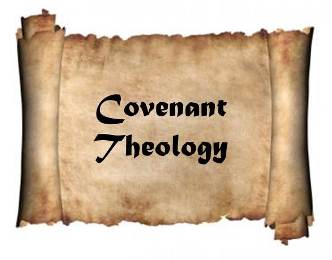EXPLORING THE WORD
Covenant Theology Part 1
The Basics
CG

First off, Covenant Theology is not a separate system of thought (e.g., Calvinism, Arminianism, etc.). Rather, Covenant Theology is a way of interpreting the bible. It's a way of viewing the unfolding of redemptive history. As such, Reformed Theology sees the concept of covenant as central to understanding the flow of Scripture. So, the first question we must ask is what is a covenant?
A covenant is an agreement between two parties in which certain things are promises and certain obligations owed between the two parties. For example, marriage is seen as a covenant between a man and a woman. Each party promises to be faithful to the other and to discharge certain duties to the other. Furthermore, within the concept of covenant, there are stipulations made in the case of failure. For example, a king may promise peace and protection to a group of people on the condition of loyalty and tribute being paid to the king. If the people fail to obey the king or pay his tribute, the king can exercise punishment on the unfaithful people. All of these things are conveyed in the concept of covenant.
According to Reformed Covenant Theology, the only way God can relate to his creatures is by way of covenant. Take a moment to consider this claim with me. Most Christians agree that we can come to some knowledge of God through the creation. Psalm 19:1 declares that the universe proclaims the glory of God, and Romans 1:20 says that God's divine attributes are displayed in the creation. Theologians call this general, or natural, revelation -- i.e., the revelation of God that is generally made known to all and can be perceived through natural means. However, there is no knowledge of God as Savior or Redeemer through general revelation. How do we obtain that knowledge of God as Savior and Redeemer? We get this through special revelation. In other words, God must condescend to reveal himself as Savior and Redeemer to his creatures; and this is does by way of covenant.
Traditionally within Reformed Theology, there are three covenants: 1) The Covenant of Works; 2) The Covenant of Grace; and 3) The Covenant of Redemption. The Covenant of Works is the initial covenant God made with Adam in the Garden of Eden before his fall into sin. In that covenant, God promised eternal life upon obedience to the covenant command and eternal punishment upon failure to obey the covenant command. The Covenant of Grace is a post-fall covenant made between God and man with Christ as the mediator of this covenant. In this covenant, God promises to his chosen people eternal life and blessedness in Christ upon the condition of faith and repentance. The Covenant of Redemption describes the covenant made between the Father and the Son before the creation of the world in which the Son promises to offer himself up as an atoning sacrifice for the elect.
We will look at these individual covenants in more detail in subsequent articles. For now, these brief summaries will have to suffice. The important thing to take away from this is that Reformed Theology sees all of redemptive history through the lens of the covenant. Covenant provides us with the best way to interpret the overarching story of Scripture. Covenant helps us to better see the connection between the Old Testament and the New Testament. As a popular saying goes: "The New Testament is in the Old Testament promised; the Old Testament is in the New Testament fulfilled." Promise and fulfillment -- that is the relationship between the Old and New Testaments.
Until next time...
Soli Deo Gloria!
CFG
Next: Covenant of Works
The Series:
Covenant Theology: What is a covenant and why is this concept important?
Covenant of Works: The promise of obedience any why it didn't work.
Covenant of Grace: The promise of the grace of God.
Covenant of Redemption: The promise between God and Jesus and what it means to us.
comments powered by Disqus
Republished 5-20-2013

